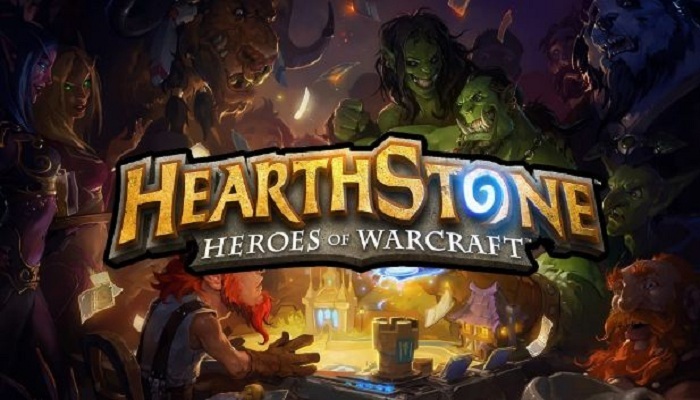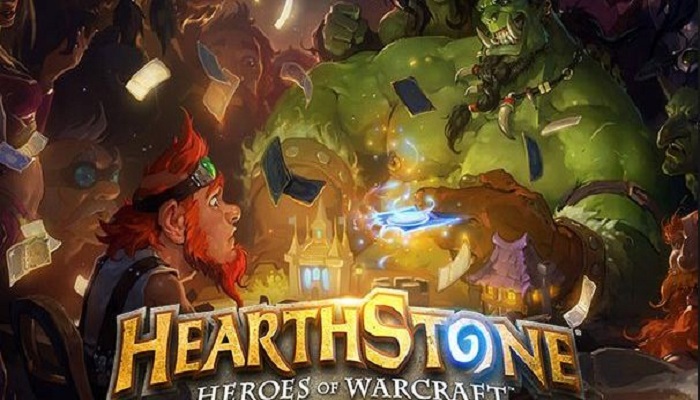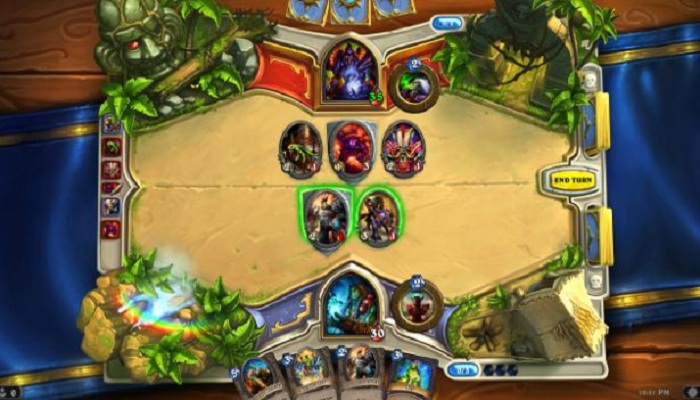Tips and tricks for Hearthstone Heroes of Warcraft. Hearthstone Heroes of Warcraft is so addictive that even typing the word into a search engine ought to trigger some sort of health warning.
Tips and tricks for Hearthstone Heroes of Warcraft
One exposure is almost guaranteed to suck you down into the demiplane of Azeroth forever, like some dark and dreadful whirlpool of swirling cards.
Anyway, once you’ve ‘arrived’ here, a protracted stay is pretty much inevitable. So, you might as well make the most of it.
It’s a disorienting place, mind, so we’ve put together this useful guide to get you started.
Deck building
Hearthstone: Heroes of Warcraft (simply referred to as Hearthstone from this point) is a deck-building game, so you’d expect us to start here and devote the majority of our time to it, right?
Well, I’m sorry to disappoint, but we’re going to skip over a bit. For three good reasons.
The first reason is that if you want to extract the maximum fun from Hearthstone while spending the minimum money, there’s a particular path you need to follow. Anyone that’s played through the tutorial will have a basic grasp of how cards can work together, and thus how to build her own decks.

Tips and tricks for Hearthstone Heroes of Warcraft
The second reason is that it’s too complex. With almost 400 cards available, there are an awful lot of viable builds out there. And, well, we only have so much room in this article for tips and hints.
Which leads us on to the third reason. Almost all of those viable builds are already out there on the internet. Go look them up. We’ll wait.
Ready? Okay, well, you might have a few questions about how you get some of the cards you’ve been reading about.
Every player starts with two “neutral” cards (like Chillwind Yeti) from a basic pool. Then, each character class has 20 basic cards you can use in decks when playing that character.
You start with the Mage only, and have to unlock the rest by beating an opponent of that class in any play mode. You should definitely do this, because it nets you some bonus gold.
Once you’ve unlocked a character, you get some of that class’s cards for free. You earn the rest by levelling-up that character, which you can do just by using the character in play.
That combination – the basic neutral cards plus the 20 basic cards of your chosen class – forms the pool from which you can build what are described as “basic” decks.
Look one up, build it, and try it out for size. You can build some surprisingly powerful decks with this simple card pool. And that’s where you should be starting your Hearthstone campaign.
- Play now: actions games 3d
Tactical tips
So, you’ve got a tried-and-tested deck, and a grasp of the rules of the game. But you’ll need more. You need to understand how to make solid snap decisions about play in the 90-second windows you are afforded.
This is where a lot of collectible card game veterans come a bit unstuck. You see, Hearthstone isn’t like other CCGs. In fact, Blizzard has tweaked a well-known formula so that this game looks similar to previous variants but plays out surprisingly differently.
Hearthstone is essentially a game about maths. You’ve got to make sure that what you’re putting on the table does more damage for the mana it costs than your opponent can manage.
At the most basic level, then, it means using a 1/1 minion to take down a 2/1 minion. Through that, you gain a small but important advantage.
A curious thing about Hearthstone is that even though you win by reducing your enemies health to zero, it’s generally best to kill minions as long as it’s a favourable trade.

Hearthstone Heroes of Warcraft
By your clearing the opposing side of the board, your minions are free to wreak havoc. And anything they can summon to fill the vacuum is generally going to need a turn of inaction to get ready.
There’s also the matter of card advantage. Because your pool of mana increases at a fixed rate, it’s very easy in the mid-game to reach a point where you’ve got no cards left in your hand, and you’re left with unused mana.
Cards like Fireball and Reckless Rocketeer, for example, can take down late-game minions in one shot. If none of those appear, you can use Fireball, say, to smash up the enemy character instead. So, best to hold onto those cards.
Forget What You Know About Synergy
The most entertaining aspect of constructed play is building combos that work well off one another. Buying a Windfury minion time by buffing another unit with Ancestral Healing can be incredibly satisfying. Unfortunately, such tactics can’t be relied upon in drafted decks.
When thinking of synergy in The Arena, think of the cards that work well with others in just about any situation. Windfury is great when the minion in question lives long enough to use it, but it’s hard to guarantee that without Taunt. A Spellbreaker’s silence ability, however, will affect any minion with an ongoing ability, and at 4/3 for four mana, it’s a solid card in its own right.
Conversely, you can also expect the other player’s deck to be slightly less reliable. Sure, Mages will probably draw Fireballs now and again, but there’s no guarantee they have an Ogre Magi or Malygos to go with it – or even a second one in their deck.

Hearthstone Heroes of Warcraft
The upshot is that you can often rely on cheaper, less interesting minions like Amani Berserker and Harvest Golem. Your opponent won’t want to waste a limited number of clearance and removal spells on “nonthreatening” cards, and you’re free to make amazing trades on the board.
By the way, remember that Chillwind Yeti we mentioned at the beginning? Always include him if you can. The Yeti is one of the best examples of a card that is always useful, and in The Arena, these unassuming minions win games.
Acidic Swamp Ooze
Weapons are very effective in The Arena. They’re nearly impossible to remove, they don’t cost a thing past their initial play, and they often come with special effects all their own. Acidic Swamp Ooze is one of the only effective counters against these useful little items while still being cheap and strong enough to be a solid second turn drop.
Chillwind Yeti
This is our third time bringing up the Chillwind Yeti in this guide. That’s how serious we are about this minion. The reason is that no other basic minion card can match it in stats for the same mana cost.
Boulderfist Ogre
Think of this as the Chillwind Yeti’s bigger brother. It’s not exactly awe-inspiring at first glance, but it’s incredibly cost-effective and that makes it perfect for The Arena. It also has enough health to survive most direct-damage spells – including the dreaded Fireball.
Mad Bomber
Not many people understand the Mad Bomber. That’s all right. You just need to understand that this is one of the only situational cards useful in an Arena deck. That’s because the number of situations he’s useful for is quite high. Use him to possibly activate your Enrage minions, burn an enemy’s Divine Shield or for a chance to wipe their one-health minions out on turn two.
Sen’jin Shieldmasta
This little troll is the best neutral minion with Taunt in the game, and one of the best such minions overall. You always want to have a bit of Taunt in any deck if you can help it, and one that has nearly the same stats as a Chillwind Yeti for the same price isn’t half bad.
Youthful/Ancient Brewmaster
Really, either Brewmaster variant will suffice. The Ancient variety has great stats for his cost, and as such, can be played when your side of the board is clear to negate his effect. The Youthful Brewmaster is less stoic, but half as expensive. Either version can be used to double up on other minions’ Battlecry and Combo effects, recharge Divine Shield or as a makeshift healing ability. These are the most reliable of the situational cards in the neutral card arsenal.
Congratulations! You’ve completed the advanced guide for Hearthstone and should have a better understanding of each class’s strengths and weaknesses, and how best to play in The Arena. Hopefully, you can take these basics, use them to form your own best strategies with every class and earn the many rewards available to those who brave the competitive scene.





